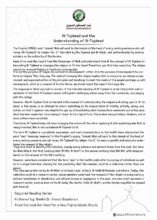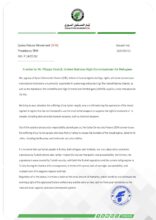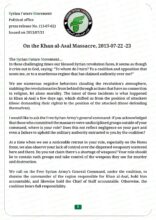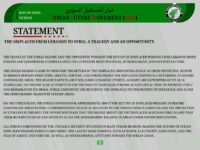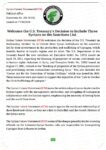Regarding the parliamentary system being prepared to resolve the Syrian issue
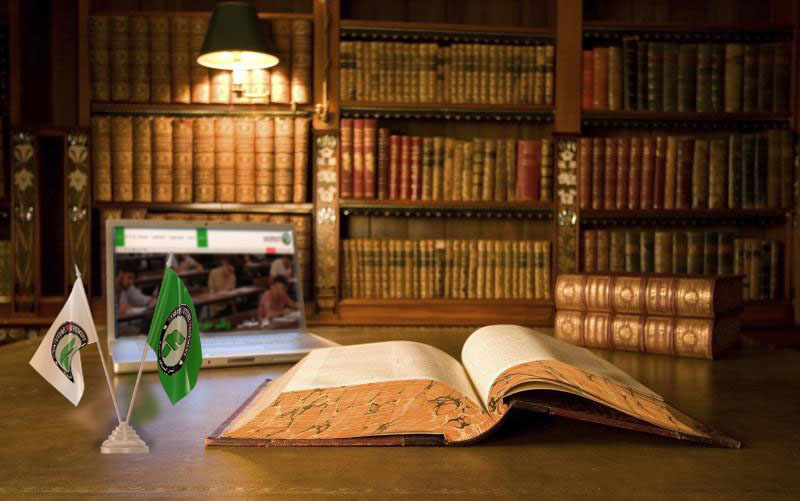
A Russian-Turkish initiative, based on special information, has recently been launched. It involves a mutual agreement between the Russian President’s Special Envoy to the Middle East and Africa, Deputy Foreign Minister Mikhail Bogdanov, and Turkish Foreign Minister Hakan Fidan. The initiative aims to persuade both sides of the conflict (the Syrian regime and the opposition) to adopt a project that would make Syria governed by a parliamentary system, as a realistic alternative to settling the Syrian file in the face of the current stalemate! The initiative requires Turkey to hand over both M5/M4 routes to the Syrian regime forces, in return for Russia’s overlooking Turkey’s seizure of the rest of the border strip from the Syrian Democratic Forces. Russia does not object to Turkey’s takeover of Aleppo city if it agrees with the Iranians on this.
Our vision in the Syrian Future Movement (SFM) emphasizes the importance of preserving the complete Syrian borders and the political transition towards building a unified Syrian national state, which we do not see as possible under a parliamentary system!
What is the parliamentary system?
The concept of the parliamentary system was established in Britain when King John San Ter lost to the French, leading to the collapse of the British economy and the entry of the nobles, the Lords, to help. This eventually aided them in creating the position of Prime Minister during the Hanoverian dynasty, who was delegated by the king with more powers. The parliamentary system evolved in the 20th century towards the sole responsibility of the parliament for government actions, while the presidency held limited powers.
The parliamentary system is characterized by a peer relationship between the parliament and the government, i.e., the legislative and executive authorities. The government is derived from the parliament, which has the power to hold the government accountable. In return, if the parliament is unable to continue this relationship, the government can dissolve the parliament and call for new parliamentary elections. This creates a situation where neither party can dominate the power alone.
Serious drawbacks of implementing the parliamentary system in Syria:
The parliamentary system is characterized by the independence of authorities, which is positive in itself, but in the Syrian case, it overlooks its complex reality! The parliamentary system means that a parliamentary majority chooses the government, and the call for new parliamentary elections happens in the absence of this majority block. Thus, the government, which possesses all the powers, actually dominates the parliament. This setup in the Syrian case means complete control for the Syrian regime, which is currently working on rebuilding itself through party reforms (Ba’ath Party reforms) and through the regime’s ability to form coalitions with the majority of parliamentary forces (SDF, the Coordination Committee, and some opposition parties). Therefore, the parliamentary system becomes a real lifeline for the Syrian regime to regain full control over the government. It is noteworthy that Iran is currently trying to control the position of the Prime Minister through the person of Prime Minister Hussein Arnous. This reality in Syria is unlike Britain, where the parliamentary system is used, and where the “Labour” and “Conservative” parties dominate the political scene, ensuring the presence of a strong opposition in parliament due to the differences in election results between the two parties. It is also unlike the situation in Turkey before the transition to a presidential system, where the “Justice and Development Party” was able to dominate the political situation to the extent of forming the government alone without a parliamentary coalition since 2002.
In the case of Syria, if the weavers of the parliamentary system fabric manage to obtain the majority in parliament, it means stability. However, if they fail, this will lead to continued political instability, and the country will enter a governmental existential crisis, unable to produce a stable governance structure. This could mean the continuation of the war in one form or another among Syrians or entering into long-term futile cycles of transitional governments acting as placeholders, or it could mean freezing the parliament and transitioning to repeated elections!
Furthermore, the Syrian conflict parties in the parliament will have an external international depth that solidifies the interests of those countries, even at the expense of national interests. For example, the Syrian regime and its allies will have an Iranian-Russian depth to their parliamentary bloc. Therefore, at any regional turning point, these countries may use their influence to hinder the government or even the parliament’s work, potentially leading Syria from a state of current dispersal to a state of total takeover. Either the demands of these countries are met, or the country is plunged into a state of deadlock and stumbling, which could lead to a phase of coups, similar to those experienced by Syria in the 1970s.
Conclusion:
Undoubtedly, reaching any option that transitions Syrians from a state of war and its consequences to a phase of a national state is generally a good choice. However, in the case of the parliamentary system, it will mean nothing more than betting on the non-interference of regional countries in the country, and on the Syrians’ ability to create coalition blocs with a majority, and a strong opposition working to reach power through success in a new parliamentary coalition. This bet will become impossible with the presence of countries like Iran, which seeks to control Syria through the concept of resistance and opposition, and with the mentality we are accustomed to from the Assad regime in monopolizing control powers and deep intelligence play against opponents.
Therefore, we in the Syrian Future Movement (SFM) recommend working away from this option in the first phase, and if it is imposed on us, we must then work on building a new phase in which different tools are used to prevent Iran and the Assad regime from further dominating power.
In response to this Russian-Turkish proposal, the Syrian Future Movement (SFM) recommends studying a proposal to unify the regions with Western-Turkish support through what we called ‘The West Germany of Syria’ experience, as published on our official website.
Jacqueline K. Al-Shami
Political Office
Research and Studies Department
Articles
Syrian Future Movement (SFM)
